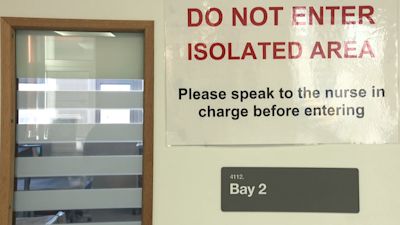Why the Omicron wave may be the biggest challenge yet to the region's NHS

Video report by Health Correspondent Helen Ford
It is an anniversary which is perhaps more significant to journalists than to many of those on the NHS frontline.
The 31st January 2022 marks two years since the UK's first two Covid patients were admitted to Newcastle's Royal Victoria Infirmary. At that stage, Covid was a new virus, and the aim of the medical team involved was to contain its spread.
Senior sister Margaret Ward was involved in the RVI's response from the start. Looking back, it was the unity of her staff members that has stood out.
She said: "We were always a close team but it's made us even closer. We're all looking out for each other, watching for signs of stress, much more aware of problems that might occur."
In another part of the hospital I met staff nurse Molly Turnbull. At the start of the pandemic, she was relatively new to nursing. She tells me that the past two years have been full of challenges, particularly when it came to supporting seriously ill and dying patients - and their families.
From the turn of 2022, Newcastle Hospitals has faced a new surge in pressure, with the rapid spread of the omicron variant through our communities.
That has led to further admissions of patients with Covid, coupled with huge demand for other services.
The trust's Deputy Chief Operating Officer, Margaret Gray explained why this has been described as the most challenging phase of the pandemic so far.
She said: "In the first wave, people stayed away. In this wave we've been faced with huge, unprecedented amounts of patients coming through emergency care but also we've had high levels of staffing absence because of course, just like the general public, our staff have come down with Covid."
In the past two years, this hospital trust has treated more than four thousand patients with Covid. While 31st January marks a milestone in the region's Covid journey, it is far from the end, and for those on the frontline of this pandemic, the work goes on.